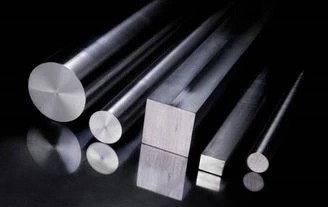Tel: 0129-4001010 Phone: +91 730 321 5033
Email: cs@absoluteveritas.com
BIS CERTIFICATION FOR TOOL STEEL FORGINGS IS 13387:1992
In today's competitive landscape, maintaining market presence without a certified, high-quality product can be challenging. Obtaining a BIS license may also be essential for selling products in the Indian market. To achieve BIS certification and ensure product quality, manufacturers must adhere to the specified Indian standards.
Let's delve deeper into at IS 13387:1992 for tool steel forgings.
IS 13387:1992 pertains to tool steel forgings utilized in metal forming processes. This standard delineates the specifications for tool steel forgings employed in metal forming operations.
As per IS 13387:1992, Tool Steel Forgings for Metal Forming are categorized into Cold Forming and Hot Forming Designations.
Forgings must be crafted from steel manufactured through an electric or other authorized process, with the steel being fully killed. The steel should be free from impurities, and forgings must exhibit minimal directional traits resulting from non-metallic inclusions. Each ingot must undergo adequate reduction through hot working and discarding to ensure overall soundness, a suitably uniform structure, and the desired carbide distribution.
Hot forging between flat dies is employed to fabricate long bars of rectangular, square, and hexagonal sections. This process is carried out using a hammer or press with ample capacity to effectively work the core of the raw material during forging.
IS 1387:1967 outlines the general prerequisites for tool steel forgings supply. These forgings are required to be provided in fully annealed and descaled states. The steel should be devoid of ferritic decarburization, and forgings must be free from internal and surface flaws. Conformance to the standard's specifications is mandatory for tool steel forgings.
TESTS
The subsequent test must be conducted for Tool Steel Forgings.
-
Decarburization
-
Tolerances
-
Hardness test
-
Chemical composition
-
Additional tests
MARKING
Every forging must be labeled with the required information outlined in the standard. Additionally, the standard mark (ISI Mark) may be affixed to the material. To utilize the standard mark (ISI Mark), the manufacturer must acquire a BIS license from the Bureau. This license is granted following a thorough evaluation of manufacturing infrastructure, production processes, and quality control and testing capabilities during an inspection of the manufacturing premises.
PROCESS FOR BIS ISI MARK CERTIFICATION

BIS CERTIFICATION PROCESS
Acquiring a BIS license requires a comprehensive review of manufacturing infrastructure, quality control abilities, testing resources, and production procedures. This thorough assessment guarantees that products not only adhere to regulations but also prioritize consumer safety and reliability.
NOTE:
For comprehensive guidance on the BIS ISI Certification process, please explore:
WHY USE ABSOLUTE VERITAS?
Absolute Veritas is a prominent organisation from the private sector of India primarily dealing with the Inspection, Testing, Audits, Certification of products& consulting services to various industries in India and worldwide, ensuring compliance with regulatory standards and industry requirements. Offering a comprehensive range of services including product certification, testing, training, auditing, and compliance services, Absolute Veritas helps manufacturers and importers achieve higher production efficiency and quality standards.
Absolute Veritas (AV) will handle end to end pre-registration request, sample preparation, documentation, testing and application process for FMCS Certification
For any questions regarding the most recent update on FMCS registration licenses, please reach out to us via email at cs@absoluteveritas.com








 ❮
❮
